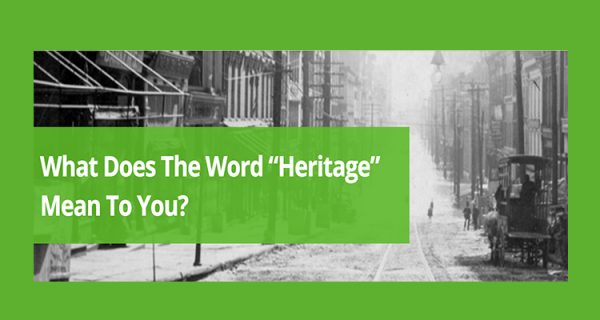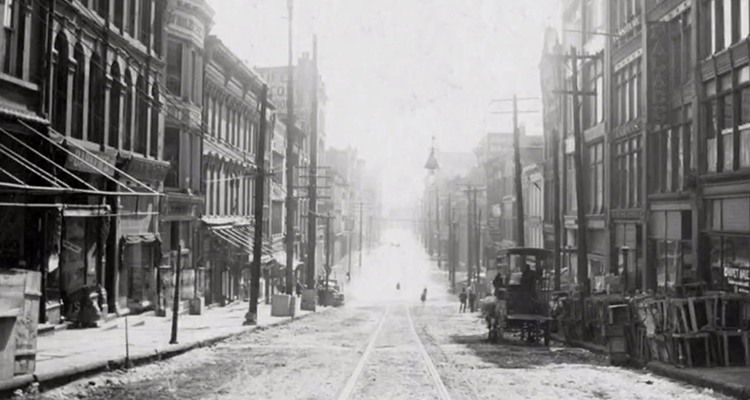The word “heritage” means different things to different people, and Wheeling Heritage wants to know how heritage plays a role in the lives of Ohio Valley residents.
Now through March 15, Wheeling Heritage is asking those interested to share their thoughts by taking a short survey at wheelingheritage.org/heritage.
Heritage spans everything from family, culture, places, architecture, art, traditions and values. There is no “wrong” answer to the survey, said Betsy Sweeny, Wheeling Heritage’s historic preservation program manager.
“Our job is to connect people to the past while staying relevant in the present. These answers will help us do just that by providing insight into the aspects of heritage that resonate with the people of Wheeling,” Sweeny said.
Responses will help the organization plan future projects, including a radio show focused on the area’s history and heritage, which is currently in the planning stage.

“Heritage programs, actually, all programs, become very powerful when the people engaging in the program can see themselves in it. It connects them to the activity, thereby making it relevant and meaningful,” said Jake Dougherty, Wheeling Heritage’s executive director.
“Through this survey, we hope to understand how we can best connect our work to more people. We are thinking about that in various ways,” he said.
“We want to capture and share new stories by new people. Many stories have been told of important occurrences in Wheeling’s history, while too many stories — real, personal stories of our community’s history — have gone untold to the public. We want to capture these stories and make them available to the greater community.”
Wheeling Heritage also wants ensure that the programs they produce connect with people. “We want people to engage in our programs. We want them to show up, ask questions and continue conversations about the topic covered. In order to do this successfully, we need to meet people where they are. We need to understand what people are thinking about and how it impacts their lives and produce programs that align with their thoughts. We can’t expect people to enjoy the same things we do. Instead, we need to think about what connects with them and develop programming accordingly.
Dougherty also noted that Wheeling Heritage wants to know what people think “when they hear the word heritage to see if our program content aligns with their definition.”
“If people are thinking about heritage one way, and we are presenting the information from a different perspective, then there will likely be a disconnect. But if we know what people are thinking about then we can reshape our narrative and better connect it to how the community is thinking about a specific issue,” he explained.
 “We are taking this process seriously, and I expect us to do more community outreach like this going forward so we can continue to hone our understanding of the community. It’s critically important that our work connects with people — all people — in our community so that each person can find at least one program in which they can see themselves in the story. That’s how I think we can truly engage the community in our work and in the continued revitalization of the community.”
“We are taking this process seriously, and I expect us to do more community outreach like this going forward so we can continue to hone our understanding of the community. It’s critically important that our work connects with people — all people — in our community so that each person can find at least one program in which they can see themselves in the story. That’s how I think we can truly engage the community in our work and in the continued revitalization of the community.”
What does “heritage” mean to Doughtery?
“I don’t want to lead people to a response to the survey prompt by answering this question personally, but I will talk about how a definition of heritage shapes the work we do at Wheeling Heritage. As we are developing programs, I often think about how our activities today are shaped by our community’s past. I think we’ve been able to do this in interesting ways.
“For example, immigration played a critical role in shaping Wheeling. Today, Wheeling Heritage provides grants to several ethnic festivals, and we produce the Celtic Celebration (coming up on March 2). These festivals showcase the food, music and dance of our ancestors who moved here for a better life, and whose traditions continue to enrich our community,” he said.
Dougherty also believes that the Artisan Center Shop on the second floor of the Artisan Center provides a platform for many local and regional artisans whose craft stems from the industries of the community.
“In many cases, the artisans who craft these pieces got their start in the factories in the area, and their artistic endeavors are born from their experiences there. The Artisan Center Shop provides an outlet for the work to be sold and showcased.
“Another example is Show of Hands. While this community-directed grant program that funds small businesses is relatively new, the model of hyperlocal investment in small businesses was a critical element in shaping Wheeling during the turn of the century. Local entrepreneurs often invested in each other so the others could succeed, thus, creating an environment that fostered entrepreneurship,” he said.
“We hope to continue providing meaningful, relevant and innovative programming that connects us to the various elements of our rich heritage.”
To have your ideas considered, complete the survery at wheelingheritage.org/heritage by March 15.
• After nearly 38 years as reporter, bureau chief, lifestyles editor and managing editor at The Times Leader, and design editor at The Intelligencer and Wheeling News-Register, Phyllis Sigal has joined Weelunk as managing editor. She lives in Wheeling with her husband Bruce Wheeler. Along with their two children, son-in-law and two grandchildren, food, wine, travel, theater and music are close to their hearts.


